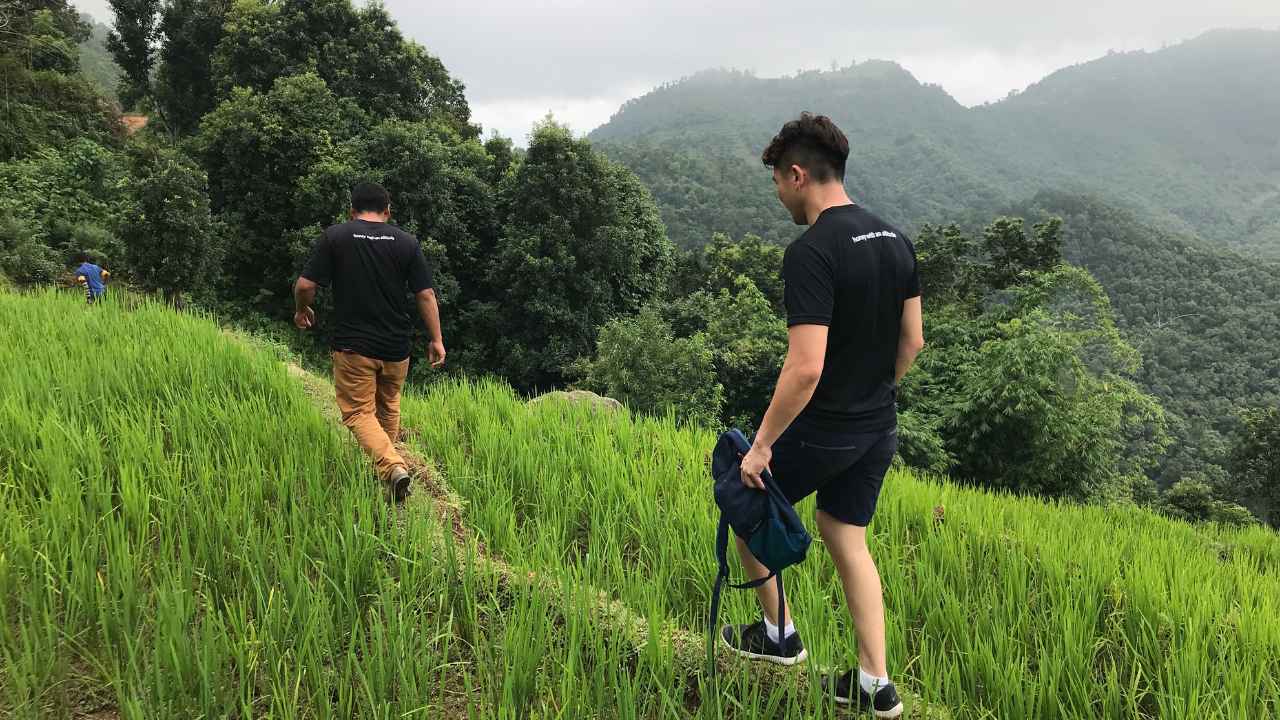LIFESTYLE
M’sian Social Enterprise Sells 5000kg of Himalayan Honey to Support Nepal’s Earthquake-hit Villages
Nepalese workers are a common sight in our country, with Malaysia being one of the primary destinations for migrant workers along with Qatar, UAE, and Saudi Arabia. There are an estimated 700,000 Nepali workers in Malaysia who are low cost labourers –– at home, most of them are farmers.
Many families are being torn apart as fathers and mothers leave their spouses to serve for extended periods here to earn money. Most tragically, not all of them are able to make it home alive.
Alvin Chew and Keith Moey, both Malaysian engineers in technology sector and aged 51, had the idea of beekeeping after a devastating earthquake in Nepal back in 2015 that killed approximately 9,000 people and destroyed or damaged many nearby towns. They were part of a relief team sent to explore ways to help their Nepali friends to rebuild their homes.

Honey was discovered as a promising source of income for the Nepalis because it is well known for its benefits to health and high demand. Chew and Moey had already previously visited in 2014 to explore possibilities with Nepalese migrant returnees to start businesses but the earthquake accelerated their mission.
Together, they have started Mahaworks, a social enterprise which brings in pure honey from the Himalayas while helping Nepali beekeepers create sustainable livelihoods. Chew explained, “Maha means great in Bahasa Melayu, and this is to reflect the significance of what is happening in these communities while it also fittingly means honey in the national language of Nepal.”

They started off their social project with one returning migrant worker who is from the Gunung tribe. He is located in the mid-North Himalayan region of Nepal and has now produced batches of pure honey from the pristine natural environment where the local bee species forage freely among the local terrain and plants.
Plants there produces so much nectar that it overflows and has a rich floral fragrance with a silky smooth texture. This honey was then sold here through Mahaworks’ social media pages as well as in organic shops in Penang and KL.
The bee farms are at an altitude of 1500-2000 meters, which is good for beekeeping. Temperature varies from places to places and at the lowlands during summer, the weather is like Cameron Highlands. Pure, raw, and natural honey can be used not only as nutritional product but also as a traditional medicine and as an alternative treatment for clinical conditions ranging from wound healing to cancer treatment.

The project then grew to include multiple beekeepers and locations. Today, Mahaworks has a presence in two villages, Chepang and Gurung that supports seven families. Besides taking care of their basic needs and helping them to start beekeeping activities, Mahaworks also helps them with community projects like donating beekeeping equipment, solar panel installations, and building a community church.
Mahaworks now sells approximately 5,000 kg of honey a year and with a part of its profits are being channelled back to the impoverished communities, beekeeping has become the main source of income for the families. Best of all, it is not a time-consuming trade as they do not have to tend to the bees all the time.
The beekeepers only need to spend time when they divide the hives or harvest the honey. Through beekeeping and honey production, the men and women in these villages don't have to leave home in the future to provide for the families.
Chew said, “This project is meaningful to us because we help keep families together. We believe that it is best for children to grow up in a family environment that both the father and mother are present to parent them. Migrant work in foreign countries comes at social and economic cost.
"Many Nepalese leave their country to work and leave their own country underdeveloped and, in some cases, family units break down because of long-term separation.”
Must-Watch Video


